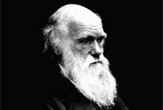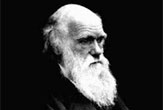
A court case that begins Monday in Pennsylvania will be the first to determine whether it is legal to teach a controversial idea called intelligent design in public schools.
Intelligent design, often referred to as ID, has been touted in recent years by a small group of proponents as an alternative to Darwin's theory of evolution. ID proponents say evolution is flawed. ID asserts that a supernatural being intervened at some point in the creation of life on Earth.
Scientists counter that evolution is a well-supported theory and that ID is not a verifiable theory at all and therefore has no place in a science curriculum.
The case is called Kitzmiller v. Dover Area School District.
Prominent scientists Thursday called a teleconference with reporters to say that intelligent design distorts science and would bring religion into science classrooms.
"The reason this trial is so important is the Dover disclaimer brings religion straight into science classrooms," said Alan Leshner, the CEO of the American Association for the Advancement of Science (AAAS) and executive publisher of the journal Science. "It distorts scientific standards and teaching objectives established by not only state of Pennsylvania but also leading scientific organizations of the United States."
"This will be first legal challenge to intelligent design and we'll see if they've been able to mask the creationist underpinnings of intelligent design well enough so that the courts might allow this into public school," said Eugenie Scott, executive director of the National Center for Science Education (NCSE), which co-hosted the teleconference.
Get the world’s most fascinating discoveries delivered straight to your inbox.
AAAS is the world's largest general science society and the NCSE is a nonprofit organization committed to helping ensure that evolution remains a part of public school curriculums.
The suit was filed by the American Civil Liberties Union (ACLU) on behalf of concerned parents after Dover school board officials voted 6-3 last October to require that 9th graders be read a short statement about intelligent design before biology lessons on evolution. Students were also referred to an intelligent design textbook to learn more information about the controversial idea.
The Dover school district earlier this month attempted to prevent the lawsuit from going forward, but a federal judge ruled last week that the trial would proceed as scheduled.
The lawsuit argues that intelligent design is an inherently religious argument and a violation of the First Amendment that forbids state-sponsored schools from funding religious activities.
"Although it may not require a literal reading of Genesis, [ID] is creationism because it requires that an intelligent designer started or created and intervened in a natural process," Leshner said. "ID is trying to drag science into the supernatural and redefine what science is and isn't."
What the panelists are hoping for is not just decision in favor of the plaintiffs, but one that is so forceful that the Dover school board will not risk appealing the case to the Supreme Court and having a negative ruling with national ramifications.
Scott pointed to an earlier case, McLean v. Arkansas, in which the state tried to get creation science taught alongside evolution in public schools.
"What happened was the pounding that creation science got was so solid that the state didn't even appeal, they just threw in the towel and quit there," Scott said.
Scott fears that a decision in favor of the Dover school district will embolden other schools around the country that want to introduce religious views into their curriculums.
On the other hand, if the plaintiffs win and intelligent design is declared unconstitutional, then "this will definitely throw sand in the gears of efforts in other school districts to institute [ID]," said Scott.
- SPECIAL REPORT: Evolution & Intelligent Design
- Nobel Prize Winners Speak Up to Support Evolution
- Top 10 Missing Links in Human Evolution
- Poll: Public Divided on Evolution
- Evolution's Vestigal Organs
- Top 10 Creation Myths
SPECIAL REPORT
Evolution & Intelligent Design
PART 1
An Ambiguous Assault on Evolution
Posing as science, this Trojan Horse for Creationism has become very popular. But who is being duped? And what does it all mean for morality?
PART 2
Intelligent design is presented as a legitimate scientific theory and an alternative to Darwinism, but a close look at the arguments shows they don't pass scientific muster. So why are scientists worried?
PART 3:
As evolution takes a beating, scientists remind us of the difference between fact, theory and belief.
PART 4: Coming Tuesday
Anti-evolution Attacks on the Rise
Attacks on evolution are on the rise once again in America. Learn about recent legislation in various states challenging evolution's place in the public school curriculum.



